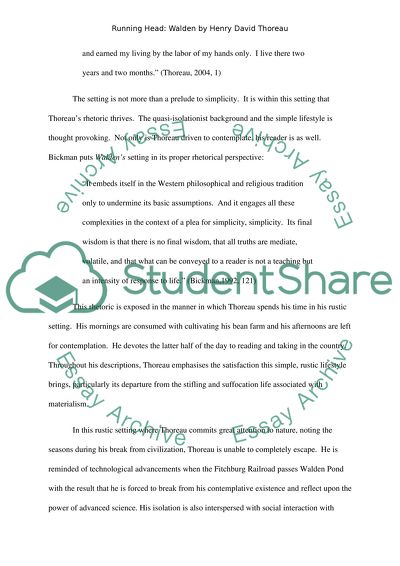Cite this document
(Transcendentalism in Walden by H.D.Thoreau Book Report/Review Example | Topics and Well Written Essays - 1750 words, n.d.)
Transcendentalism in Walden by H.D.Thoreau Book Report/Review Example | Topics and Well Written Essays - 1750 words. https://studentshare.org/literature/1545885-walden-civil-disobedience
Transcendentalism in Walden by H.D.Thoreau Book Report/Review Example | Topics and Well Written Essays - 1750 words. https://studentshare.org/literature/1545885-walden-civil-disobedience
(Transcendentalism in Walden by H.D.Thoreau Book Report/Review Example | Topics and Well Written Essays - 1750 Words)
Transcendentalism in Walden by H.D.Thoreau Book Report/Review Example | Topics and Well Written Essays - 1750 Words. https://studentshare.org/literature/1545885-walden-civil-disobedience.
Transcendentalism in Walden by H.D.Thoreau Book Report/Review Example | Topics and Well Written Essays - 1750 Words. https://studentshare.org/literature/1545885-walden-civil-disobedience.
“Transcendentalism in Walden by H.D.Thoreau Book Report/Review Example | Topics and Well Written Essays - 1750 Words”. https://studentshare.org/literature/1545885-walden-civil-disobedience.


